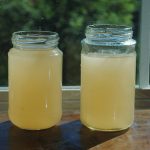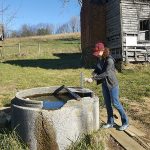
Federal funding and an innovative nonprofit program are key resources McDowell County, West Virginia is using to correct its decades-old problem with access to clean drinking water.

Federal funding and an innovative nonprofit program are key resources McDowell County, West Virginia is using to correct its decades-old problem with access to clean drinking water.

North Carolinians have won a major victory with the announcement that Duke Energy would remove coal ash from its remaining sites. Appalachian Voices is proud to have worked side-by-side with the people who fought so hard, for so long to defend their communities.
A state legislative committee accepted an industry group’s last-minute amendment to state drinking water standards dictating safe pollutant levels.

Melissa and Chauncy Easterling first discovered that something was wrong with the well water that fed their Jolo, W.Va., home in late 2016. Neither they nor their local health department could pinpoint the cause. “It had a real strong odor…

Most Americans don’t think twice about the ability to turn on a tap and have clean, safe water pour out. “Water is something we take for granted,” says Glenn Barnes, associate director of the Environmental Finance Center at the University…

By Hannah Gillespie Springs Harbor Potentially Harmful Bacteria Leigh-Anne Krometis, associate professor in Virginia Tech’s Department of Biological Systems Engineering, began studying the use of Appalachian roadside springs for drinking water in 2016 to determine whether they could be a…
As of July, the N.C. health department sent “do not drink” notices to 301 homeowners near coal ash ponds whose well water contains dangerous levels of heavy metals and other contaminants associated with coal ash.